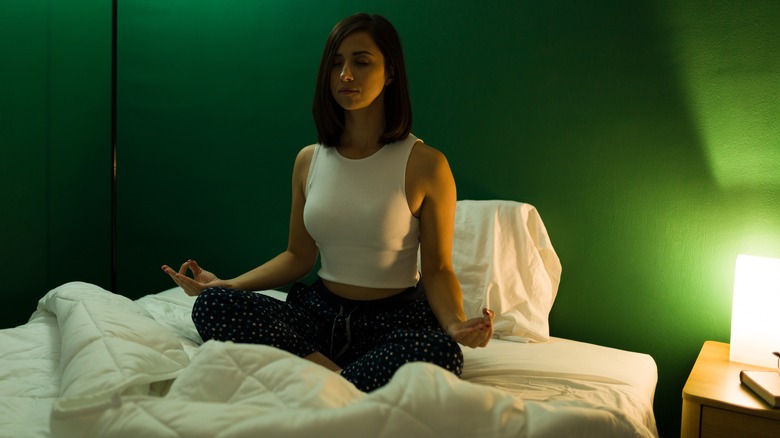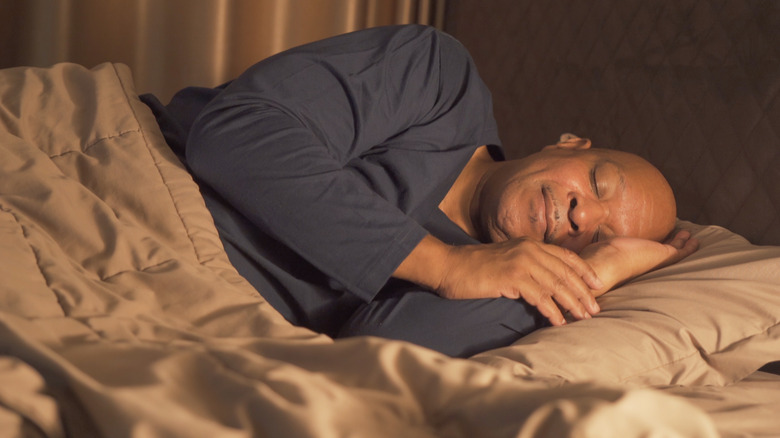When You Meditate Before Bed, This Is What Happens
From apps to classes to YouTube videos, there's no shortage of resources out there to teach one how to meditate. Meditation has become a popular form of self-care — and for good reason. Not only does it come with a host of physical and mental health benefits, but this wellness practice has the added benefit of being able to be practiced anytime, anywhere.
Meditation is more than just a form of relaxation. In fact, some medical practitioners incorporate it as part of their patient practices. UC Davis Health cardiologist Uma Srivatsa is one such doctor stating, "I frequently deal with patients who are anxious, so I teach them a quick meditation during office visits."
In addition to alleviating anxiety, UC Davis Health states that meditation can also aid in reducing blood pressure and chronic physical pain, improve focus, boost memory, as well as foster a greater sense of compassion, among other benefits. Many people include meditation as part of their morning routine to start off the day, but what happens when we meditate at night? Does meditation mainly have stimulating effects, or can it help ease us into sleep?
How meditation affects sleep
Experts at Sleep Advisor believe that one of the best times of day to reap the most benefits from meditation is first thing in the morning. In doing so, you can start your day off on the right side of the bed with mindfulness, but what about before climbing into bed?
There is some debate as to whether or not meditation is best practiced before bedtime. On the one hand, meditation has been shown to improve one's quality of sleep. When in a state of mindfulness, we are able to release tension in our muscles and focus on the present rather than negative thoughts about the past and future. Mindfully decompressing can help us fall into a natural sleep state. Sleep Advisor recommends engaging in meditation one hour prior to bedtime.
On the other hand, some feel that meditation serves more as a means to wake us up rather than put us to sleep. Because meditation can prompt attention and energy, these sensations may not be conducive to quality sleep, according to Sleep Advisor. However, there is no right or wrong way to meditate. Whether you decide to sit for an hour in a class, or simply take some deep breaths as you recline on your pillow, meditation is a personal practice and best done in whatever way works for you.


